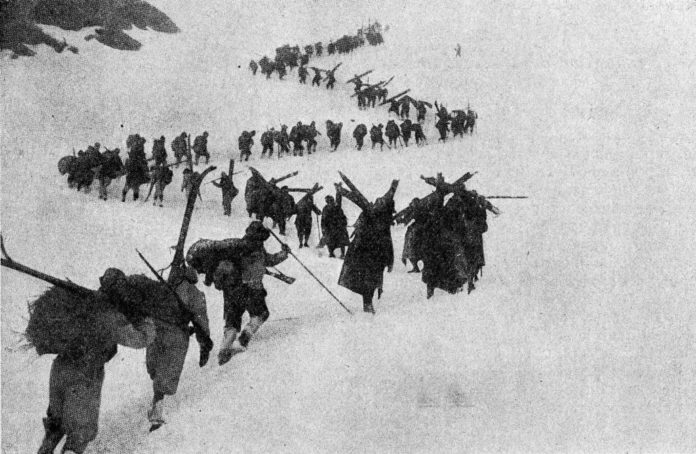Rome (NEV), November 18, 2018 – It is a many voices chorus the one the daily Riforma.it reconstructs on the role of Italian Protestants in the First World War: soldiers at the front, pastors’ moral and spiritual assistance, women, pacifists and neutralists, patriots, newspapers and letters documenting history.
The series opens with an introductory interview with the historian Giorgio Rochat “We and the First World War”, by Samuel Revel. “The 1914-1918 conflict, unlike the following one, was fought by a united Country. This is why it remains in the collective memory…. the memory of a great tragedy”.
The second chapter is the article about Italian Baptists, by Emmanuele Paschetto: “Between neutrality and patriotism”, where among other things we find the description of the internal divisions between “those who were against the war and appealed to Christ’s love and to the commitment to peace, and those who referred to the rhetoric of sacrifice and to the Italian civilizing mission”.
In the third passage, the person in charge of the Historical Archive of the Waldensian Board, Gabriella Ballesio, draws a profile of the moderator Ernesto Giampiccoli, the military chaplains and the Committee for the moral and spiritual assistance to the evangelical soldiers.
The fourth study is entitled “Women and the Great War”, written by the Waldensian pastor Letizia Tomassone. “Their contribution went far beyond the material aspect, founding the basis for a reflection on nonviolence and for the construction of a peaceful cohabitation among peoples … in the Protestant context the connection between suffragists and pacifism was strong” – explains Tomassone in illustrating the feminine route that, during conflicts, passes over family and daily life
to go to the heart of what happens at social and collective level.
Fifth article, “The Waldensian newspapers and the Great War. Divided between those who fight at the front and those who are anxiously waiting at home”, by Claudio Geymonat who interviews pastor and historian Giorgio Tourn on what might be called an historiographic rarity”.
Sixth and final analysis: “Giovanni Ribet: a hero to be remembered to young people” by Michele Vellano. The story of the Major is an opportunity to reflect on some of the values, such as nationalism and hostility, that are re-emerging in this historical moment.



























